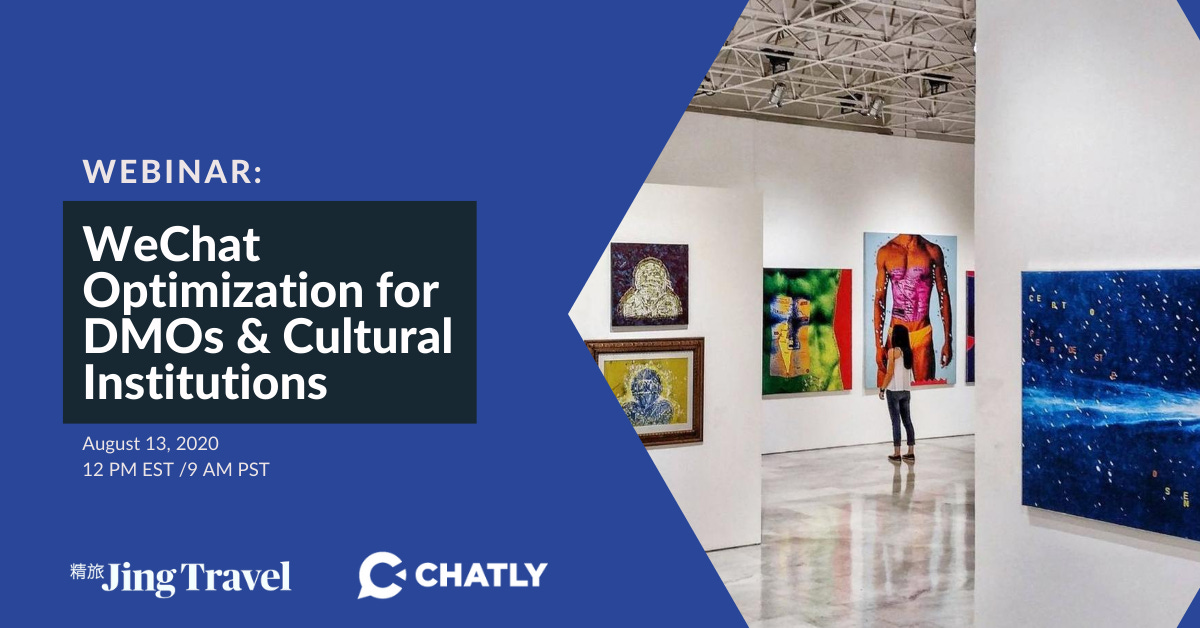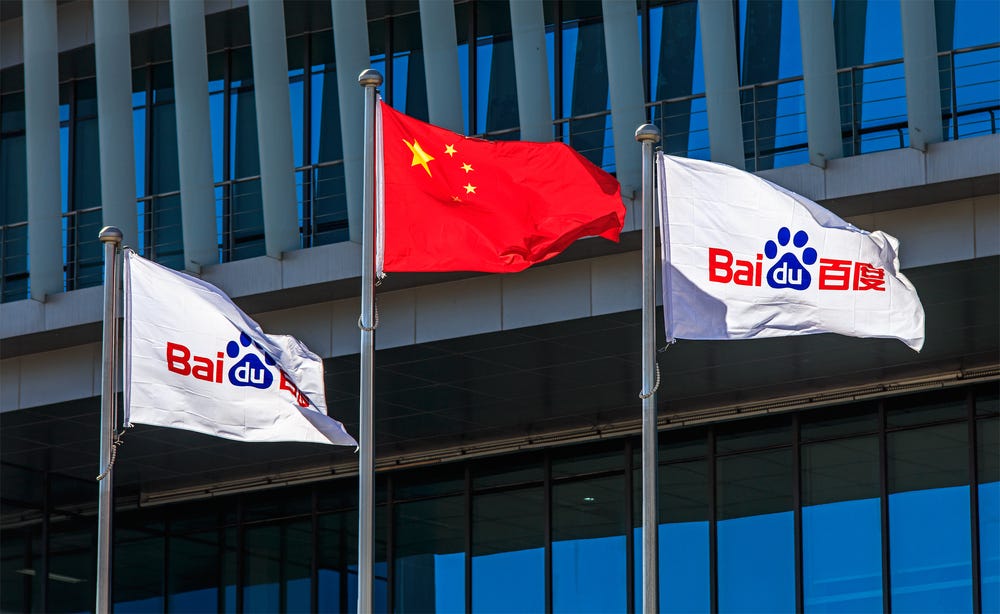The Keys to Livestreaming Success, From the Experts
Plus: Suning makes high-end moves, a search engine struggle, and WeChat optimization for cultural institutions.

On August 5, Content Commerce Insider and our sister publication Jing Daily hosted a webinar on how luxury brands can profit from China’s hottest new e-commerce trend — e-commerce livestreaming. The conversation was moderated by Jing Daily’s editor-in-chief, Enrique Menendez, with a presentation led by Sky Canaves, editorial director of Content Commerce Insider (CCI).
Featured panelists included Kevin Jiang, the president of international business at JD.com fashion and lifestyle; Masha Ma, owner and lead fashion designer of MASHAMA; and Anny Fan, a top luxury KOL and influencer. Together, they covered how e-commerce livestreaming would continue to play a critical role in China’s luxury retail sector during the post-Covid-19 era and beyond.
The hour-long webinar started with a presentation by Canaves, who introduced China’s booming livestreaming industry. First, she explained how the business originated in the entertainment industry in the 2010s but saw rapid expansion in other sectors this year thanks to Covid-19.
China is home to 905 million internet users, and over 60 percent of them are engaging with some form of livestreaming. In 2020, e-commerce livestreaming became the biggest livestreaming sector — overtaking the video game industry — yet there’s still room for growth. New trends in e-commerce livestreaming continue to pop up across the industry, as celebrities, sales staff, and even CEOs have now joined the livestream hosting ranks.
Canaves then went on to highlight the risks and rewards of China’s livestreaming business. Brands must be aware that the best livestreaming experiences create a positive impression with consumers but don’t necessarily translate to sales. At the same time, livestream content innovation is highly valued and can build brand equity. Brands, she explained, should experiment with various platforms to see which one works best, and since fake traffic and sales fraud can be problems, brands need to choose their livestreaming partners carefully.
After Canaves’s analysis of livestreaming, she — along with Jiang, Ma, and Fan — dove into a discussion about the top livestreaming tech platforms and content management systems. They also debated the most strategic ways for brands to use this new marketing tool.
Below, we take an in-depth look at three key takeaways from the webinar:
Lower-tier cities in China are fueling e-commerce livestreaming
The speakers began their discussion on the topic of why livestreaming has gone viral in China. Recently, livestreaming has become a crucial way for consumers across the full spectrum of Chinese netizens to purchase products and educate themselves about brands.
Jiang noted that China’s lower-tier cities (those outside top-tier cities like Beijing, Shanghai, and Guangzhou) make up two-thirds of the massive online consumer market in the country. “The people who live in lower-tier cities have more time to spare, less work/life pressure, and are looking for something interesting to help kill time,” he said. This group of consumers and their strong spending power is what has fueled the e-commerce livestreaming industry. The rapid development of telecommunication technology, affordable cell phones, and more convenient express delivery services have made it much easier for people to watch livestreams and place orders.
Sales-driven versus content-driven livestreaming platforms
Livestreaming platforms in China can be categorized as either sales-driven or content-driven. The first category is best represented by Chinese e-commerce giants like JD.com and Alibaba. The second usually refers to tech companies like Tencent or Little Red Book. But because of greater use, the boundaries between these platform types are continuing to blur. Content-driven short video apps have been steadily moving into the e-commerce sector, while big internet retailers have been upgrading their offerings with programming that’s more often associated with video and entertainment platforms, from Jing Daily and CCI’s white paper, Next-Level Livestreaming: How Luxury Brands Can Stand Out to Drive E-Commerce Sales.

At this point, Fan went on to share her livestreaming experiences on both types of platforms, using Tmall and Little Red Book as examples. She concluded that Tmall is good for presenting product features, while Little Red Book is handy for heightening brand awareness and collecting genuine user feedback. She felt that livestreaming shortens the distance between KOLs and followers and is a great way to engage with fans. When it comes to choosing the right platform, Jiang noted that massive platform traffic doesn’t necessarily mean higher conversion rates, so brands must be aware of each platform’s target audience when choosing a platform.
There’s no such thing as the “right” KOL
As more and more hosts hop onto livestreams — including celebrities, CEOs, salespeople, and even virtual idols — how to choose a KOL to best represent your brand is now a concern. “There’s no such thing as the right KOL,” said Ma, adding that every KOL has their own livestreaming style, and some might not be the best fit for a luxury brand. Therefore, just because a KOL has a massive fanbase, that doesn’t necessarily mean they will deliver a greater sales performance. Fan added that the KOLs have to be familiar with a brand they’re promoting in a livestream.
Jiang concluded that brands should allocate their budgets wisely, and they shouldn’t expect one livestream or KOL to make a massive difference for their brand. Building brand awareness, he said, requires a systematic marketing matrix that includes articles, short videos, and advertisements. Livestreaming is simply one of many available tools.
- by Chenyue Fu, Jing Daily Team
Have a follow-up question about how livestreaming is impacting industries as diverse as luxury, marketing, consumer goods, education, and health? Have feedback or suggestions for Content Commerce Insider? Interested in sponsoring a future webinar or white paper? Drop us a line!
Mentioned in today’s newsletter: Alibaba, Armani, Carrefour, Didi Chuxing, Douyin, Gucci, JD.com, Kuaishou, Lancôme, Prada, Sogou, Suning, Tencent, WeChat.
Suning Makes Moves Into Luxury Commerce and Douyin Content

Following in the footsteps of rival JD.com, mega-retailer Suning is making a bigger push into content and high-end commerce with recent bold moves.
Suning is best known as a mass-market bricks-and-mortar retailer focusing on home appliances and consumer electronics (akin to Best Buy in the U.S.), with more than 8,200 self-operated stores across the country and another 4,500 franchises in lower-tier markets, and it has been on an expansive acquisition spree to diversify its offerings while growing into a major force in e-commerce.
Last year it took over French supermarket chain Carrefour’s China business and added 37 Wanda department stores to its holdings, and it has opened a series of concept stores under the Jiwu brand that focuses on European products. Alibaba is one of its major investors with a nearly 20% stake.
In a deal similar to the one announced in June by JD.com and Kuaishou (both backed by Tencent), Suning will partner with Douyin to allow the short video app’s 400 million daily active users to purchase goods from Suning without having to leave the app, and Suning will provide guarantees of product authenticity, logistical support, and after-sales service.
That strategic partnership kicked off on August 7 with a livestreamed sales broadcast on Douyin hosted by celebrity entrepreneur-turned-salesman Luo Yonghao, who has become one of the biggest names on Douyin since he started his livestreaming career on the platform back in April. Luo sold a reported RMB 200 million ($28.7 million) worth of products during the four-hour broadcast, breaking his previous sales record from his April 1 debut — and this was really just a warm-up for Suning’s upcoming “818” sales event that will mark the company’s 30th anniversary on August 18 in a much bigger manner.
Like JD.com, Suning is also seeking to move into luxury e-commerce, launching its first luxury festival on August, though its marketing strategy appears to have been geared towards heavy discounts, with cash coupon giveaways and prices on high-end brands such as Gucci, Prada, and Armani cut by as much as 50% (the company has promised to supply certificates of authenticity for all products.)
Suning announced that actress Jiang Shuying will be its new brand spokesperson. Jiang is currently in the spotlight for her starring role in the hit female-focused drama “Nothing But Thirty” (三十而已), in which she plays Wang Manni, a salesperson at a high-end department store with high standards for customer service and integrity. Since its premiere last month, “Nothing But Thirty” has been one of the hottest topics on Chinese social media, including on Douyin. Suning leveraged that popularity by inviting Jiang to host a livestream as part of the luxury festival. Broadcasting from a Suning Jiwu store in Shanghai, Jiang offered a selection of designer goods and beauty products inspired by the show, shared insights into her character’s story arc, and tips on how to be a top seller like Wang Manni along with her beauty tips — including a shout out to Lancôme’s 196 lipstick shade, which is now promoted by the brand as the “Manni color.”
It’s a promising start to upgraded livestreaming for Suning and comes as e-commerce has grown to play a critical role in its business — it’s the fourth largest online retailer after Alibaba, Pinduoduo, and JD.com. In the first half of the year, online sales accounted for 70% of Suning’s total, first due to the immediate impact of the coronavirus, and later thanks to heavy online sales promotions aimed at boosting the recovery of consumer spending, such as June’s 618 Shopping Festival.

2020 has been an extremely difficult year for the tourism and cultural industries. But there’s no doubt it will rebound, and when it does, it could potentially be one of the biggest years on record for Chinese visitors.
That being said, planning for the 2021/22 travel surge needs to begin now.
Chinese travelers will be eager for adventure, yet cautious at the same time. WeChat is a key tool tourism organizations and cultural institutions should leverage to communicate reopening and safety information, share independent travel itineraries, provide customer service, and enable touchless payments and digital destination guides.
On August 13 from 12:00 PM - 1:00 PM EDT, join CCI sister publication Jing Travel for a webinar on “WeChat Optimization for DMOs & Cultural Institutions,” with insights from Lauren Hallanan, Head of Marketing at Chatly and Peter Huang, Managing Editor at Jing Travel, along with a panel discussion featuring Theresa Belpulsi, VP of tourism, sports and visitor services at Destination DC, Carly McCloskey, assistant director of tourism sales and marketing for The Museum of Modern Art, and Julie White, marketing manager at the Art Institute of Chicago.
The guests will share how their organizations have incorporated WeChat into their China strategy and what tactics they have found most effective for driving ROI.
Click here to register for the webinar
A Search Engine Struggle in China as Bytedance, Tencent Compete to Unseat Baidu

With roughly 70% of search engine market share in China, Baidu has long maintained its position as the “Google of China,” with a number of much smaller competitors — among them Sogou (approximately 20% market share) and Haosou (4%) — continually nipping at its heels.
But in recent years, amid the explosive growth of Tencent’s super-app WeChat and a constellation of popular news and entertainment apps from Bytedance, search engines in China have lost their central importance, leaving Baidu fighting on a number of fronts to stay relevant and — more importantly — draw back some of the ad money that has been shifting to its rivals.
As the Financial Times noted last summer, the competitive search market in China has changed rapidly due to the fact that most Chinese internet users are glued to their smartphones rather than desktop computers or tablets — as is the case in the United States, for example.
Nowadays, as David Dai of the global asset management firm Bernstein told the FT, “It’s not search competing against search any more. It’s search competing against everything else.”
Read the full article on Content Commerce Insider
Brand Film Pick: Didi’s Suspenseful PSA
Among other concerns over passenger safety, the Chinese ride-hailing giant Didi Chuxing recognizes that sleep-deprivation is a major cause of serious crashes. In recent years, the company has taken measures to improve its drivers’ awareness of the dangers associated with driving while fatigued and ensure that they are well-rested on the job.
Last week, Didi made a more public effort to promote safe driving with the release of its new brand film, "Someone in the Car” (车后人), a thriller that taps into the current craze for suspenseful content.
The film tells the story of a Didi driver who decides to accept one more ride request despite being exhausted after a full day of work. During the ride, he becomes delirious and imagines that he is arguing with his ex-wife, who he sees in the back seat. The actual passenger begins to panic as his drowsy driver veers into oncoming traffic. Moments before colliding head-on with a large truck, the driver wakes in his parked car, revealing that the traumatic scene was a dream. Checking his phone, he sees numerous missed calls from his ex-wife urging him to head home, along with a reminder from Didi to limit his driving time for safety reasons.
Didi uses branded film as a marketing tool to help educate customers about the exact measures it takes to improve safety for both drivers and passengers, such as messaging a driver’s emergency contact when fatigue is detected and forcing both short and long rest breaks once certain driving thresholds are reached. Earlier this year, Didi announced that it would invest RMB 3 billion ($430 million) in smart devices that will analyze fatigue levels and require drivers to go offline when certain criteria are met.
Didi has been investing heavily in content over the past year, part of a broader effort to improve the brand’s image in the aftermath of a PR crisis that included two deaths, using comedy shows, reality TV, and popular dramas, even going so far as to establish a media company late last year. Going forward, Didi plans to produce more micro-films to expand on the concept of safe driving for its drivers.
- by Ben Guggenheim, CCI Team
News in English
The male luxury consumer is drawing increased attention from brands in post-pandemic China, where gaming and esports may offer especially lucrative marketing channels. Business of Fashion
Brands are boosting their presence on China’s online talent competition shows, which can allow advertisers to tie voting for contestants to the purchase of products. GroupM
Douyin vs. Bilibili: Different audiences and tastes mean that brands should avoid posting the same videos on two very different platforms. China Marketing Insights
The mainstreaming of Bilibili has brought the video platform huge successes, along with some backlash from veteran users who are part of its original ACG (Anime, Comic and Games) niche subculture. Sixth Tone
China’s online retail sales grew by 7.3% in the first half of the year, and it wasn’t all due to the coronavirus: June’s tally was up 18.6% (thanks to the big 618 Shopping Festival). Xinhua
The healthy consumer recovery in post-pandemic China has made the market critical for Western brands, especially in the luxury sector. Wall Street Journal
And American brands need to “look and feel more Chinese” in order to appeal to consumers, especially when it comes to online presence and digital marketing. Reach Further
More e-commerce livestreaming regulation: The State Administration for Market Regulation of China has released new draft guidelines that anticipate more direct supervision of the booming sector. Global Advertising Lawyers Alliance
We’ve Got China Covered
China Film Insider: China Launches New Guideline on Promoting Sci-Fi Films Development
Jing Daily: Are Sales Associates the New Luxury KOLs Post-Covid-19?
Jing Travel: TikTok Battle Puts Culture in the Crunch
Thank you for reading and subscribing! If you enjoy what we’re doing at CCI, please consider sharing our newsletter with a colleague or friend! We’ll be back on Thursday with more news and exclusive content.


